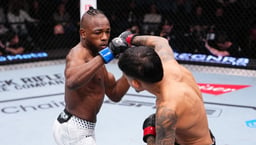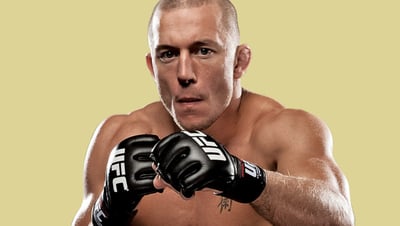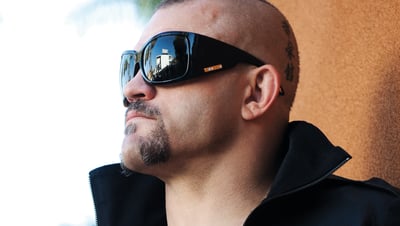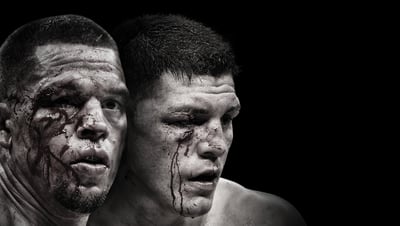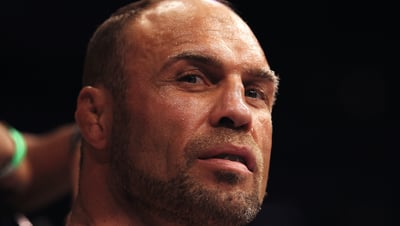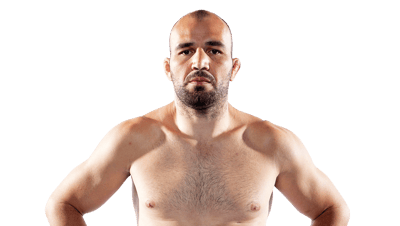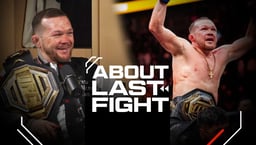
Issue 156
July 2017
Why ‘The Last Emperor’ is an athlete unlike any other
The most striking thing about Fedor Emelianenko in the flesh, up close and personal, is the stillness. The quiet man has an unbelievable stillness of being. It creates an extraordinary aura around him. Like an awareness. It affects you, too. He appears to glide when he walks. Head still, everything so deliberate. Like the air doesn’t move as he passes through it. Like the silent destruction of so many opponents.
I’ve worked with and interviewed many of the great heavyweights of the past and present in 25 years as a broadcaster and sportswriter, in boxing and MMA. And I have to confess that Emelianenko is like no other fighter I’ve ever come across. The closest would be Randy Couture, who has the same presence and assuredness. If you were in the trenches during a war with him, and he said ‘follow me now’, you’d simply go.
The very greatest champions develop an unmistakable aura. It has been thus forever. The best of the best in every era inherits one. But they are all different. Most of the very greatest heavyweight fighters, given their standing, develop an imperious presence. Ego, accomplishment, riches, adulation. Not to mention the toughness, resilience, skills, effort and practice it took to get there. We know that, we have taken a form of visceral pleasure in their acts of violence. These are a potent combination which raise a champion up to extraordinary levels in our consciousness. They can change a person, too. But those things don’t appear to have molested the core of the fighter – or the man – in Fedor.

He engages in his way. Even the lowered tones of his answers to your questions make you want to reach in and poke Fedor to see if he is real, as you wonder if his heart is actually beating. Or, at least, begs the thought of how slowly that resting heart-rate must thump. But it is beating and it’s a huge, stoical, champion’s heart.
When you interview the man known as ‘The Last Emperor’, who is, in reality, a rather reluctant sovereign, those probing eyes meet yours with a gentle intensity. Almost an indifference. Every answer, always modest, comes through a translator, with the answers having to be pulled out of him with a crowbar. In those eyes, I see – and feel – a man who has a fear of nothing, who is at peace with what’s around him. There are no frills. He has a small entourage with him who all go about their work quietly and diligently. No outward air of menace. They ape Fedor.
He’s not a big man, either, which is a shock to most people when they meet him for the first time. But you know he could become a raging boulder in the flick of a switch.
‘Big John’ McCarthy reckons that both of Emelianenko and Fedor have the same mental qualities: “They want to win, but don’t need to win.” They have something in them which allows them, in some sort of mental and emotional state, to be at peace about enjoying a relaxed art of fighting. A comfort in that brutal artistry as any ‘civilian’, like us, might find in cooking our favourite meal. Normal, natural, no fuss.
Other heavyweights, such as Mike Tyson, gave off a frightening electricity; Lennox Lewis pulled himself up to his full height and arched his back, looking down on mere mortals; Brock Lesnar had a huge physical presence, with the emphasis on physical. It is gratifying that ‘Iron’ Mike, such a different character, said he is a huge fan of Fedor. Like so, so many other fighters.
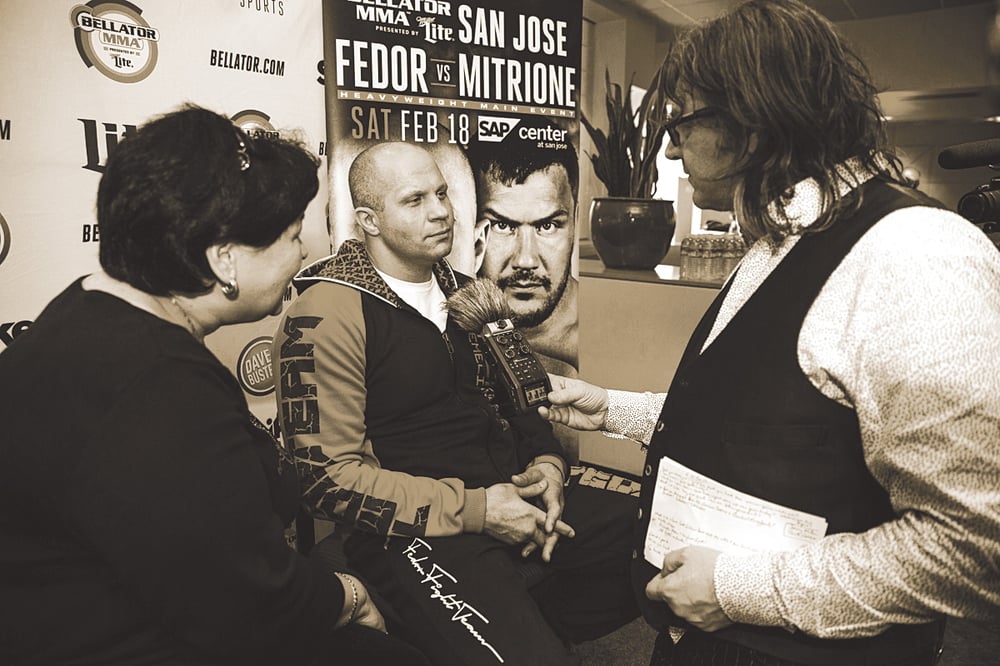
Fedor is often the fighter’s fighter. I reckon it’s because Fedor has the perfect identity. The hardest man on earth, who does not need to proclaim his own greatness. I discussed it with Scott Coker, CEO of Bellator, and his attitude was the same, yet put another way: Fedor is actually the living embodiment of what a ‘true’ martial artist should be.
Having discussed Fedor with dozens of heavyweight names from fight sports over the years, no one has a bad thing to say about him, either, even those who have been mashed by him. It says so much about the man.
As you attempt to probe a reluctant fortress for information about him, so little emotion exudes from him, yet there is something immediately likeable about him. Perhaps because we know what he is capable of in an instant. It’s what old T’ai Chi masters might have recognised as a state of Zen. He’s very special, mesmerising even. In fight terms, perhaps that leap from neutral to fourth gear, and his ability to sustain any crashes, is what has made him such an icon.
I was in San Jose to interview the quiet Russian as he slipped into the SAP Center, home of the city’s NHL team. The venue is known as ‘The Shark Tank’. We are talking in the same building where that win streak ended, in June 2010, against Fabricio Werdum. Until then, he swam through that tank himself and gobbled up all the sharks.
And indeed, this place was the scene of his first loss after that long, long 28-fight undefeated run, defying styles, opponents from five continents and the mores of MMA which say all fighters can be beaten.

A tiny smile exists on his face that day in San Jose, and through his utter civility, I know that it actually belies a ferocious fighting past, a wrecking style all of its own. Sizing ‘Fedor’ up in the flesh, his accomplishments become all the more astonishing. Given his size, at just under six feet tall, and weighing 230lb, how did he beat all-comers for that sustained period? Speed of thought, action, and self-belief. Or even the belief that God would decide his fate. These are powerful foundations on which to fight. Just as intriguing are the stories and profiles written about a person who very rarely opens up. And it is no ruse. Fedor is a modest, simple man. I’ve witnessed it first-hand.
He was clearly ahead of his time, and the man of his time, but one question will remain: what would have happened if he had gone into the UFC? It never happened so there will always be that question.
Yes, he’s lost a few fights now, as happens eventually with pretty much all the greats, but Fedor’s trademark, his fighting charisma, has never left him. When he comes into the ring, he appears as calm as a monk: no emotions, walking straight to the ring, no great salutations. Ditto – win or lose.
I think Coker is right when he told me: “His body of work will speak for itself and how he carries himself will speak for itself. You talk about martial arts character. He’s got all that. That’s what I love about him.”
What I have experienced around Fedor rings true when you hear his compatriots talk of him. Fans and fellow journalists. He is loved by the people of Russia for the way he carries himself, because he remains a champion of the people and the face of sport in his country. The quiet fighter’s great reluctance to open up to just a very few has only added to the mystique and enigma of the man. They say never meet your heroes. It couldn’t be further from the truth in the case of Fedor Emelianenko.


